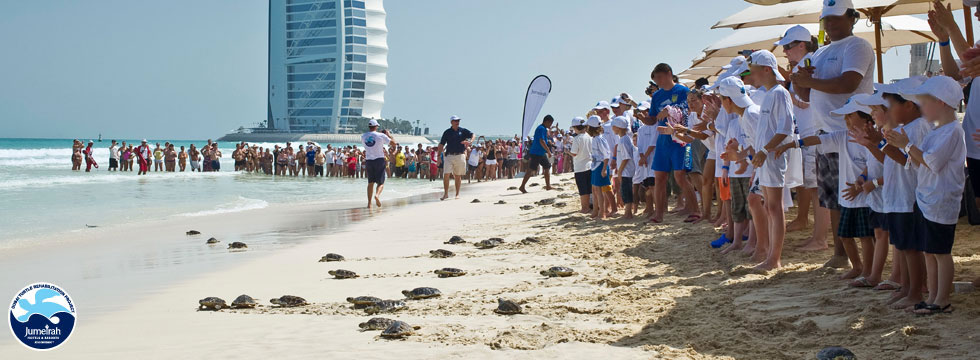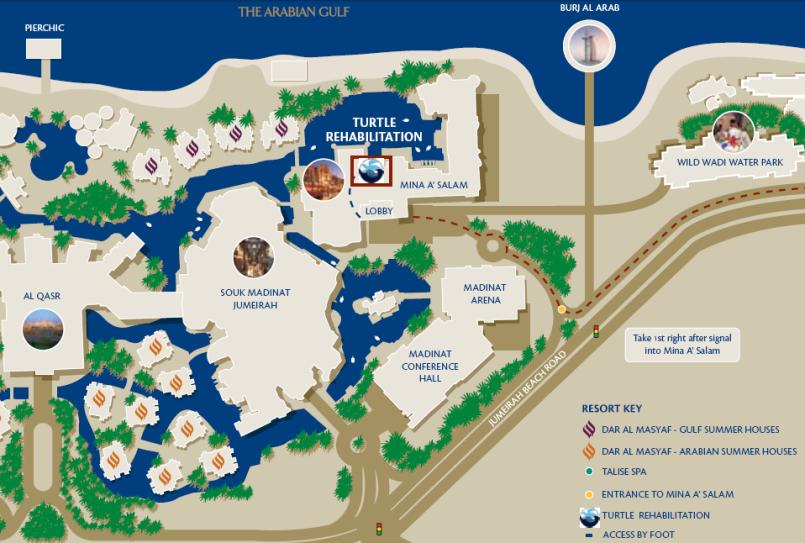Jumeirah, the Dubai-based luxury hospitality company, has announced that the annual summer turtle release carried out by the Dubai Turtle Rehabilitation Project (DTRP) will be open to the public for the first time (Friday 29th June from 8.30am).
Six rehabilitated sea turtles (two Green Sea Turtles, two Loggerhead Turtles and two Hawksbill Turtles) will each be tagged with a satellite device that monitors their whereabouts in the earth’s oceans. Each tagged turtle is sponsored by a Jumeirah property – Jumeirah Beach Hotel, Madinat Jumeirah, Jumeirah Zabeel Saray, Wild Wadi, Jumeirah Living and Burj Al Arab. Using satellite technology to track their location, the turtle that travels the farthest will be announced the winner in October 2012.
At the event, over 100 Hawksbill Turtles will be released by children back into their natural habitat following several months of rehabilitation at Burj Al Arab and Madinat Jumeirah.
6 of the 7 breeds of turtle are on the critically endangered or endangered species list – their future is uncertain. Since February 2005, the Dubai Turtle Rehabilitation Project has released 86 turtles successfully back into the wild.
Facts about Turtles
- There are two types of turtle commonly found in the Gulf of Arabia, the Hawksbill and Green.
- A female turtle can lay between 60 and 150 eggs depending on the species.
- It takes the eggs around 2 months to incubate depending on the climate.
- The sex determination of a hatchling is temperature dependent. Eggs incubated above a temperature of 31˚C will most likely be female while eggs below 29˚C will be male. Eggs incubated between 29˚C and 31˚C will be of mixed sex.
- Both Green and Hawksbill turtles nest within the region.
- Turtles will always try to return to the very beach where they emerged to lay their eggs.
- Mating takes place at sea, once the eggs are fertilized the female returns to land to lay her eggs.
- Only one out of a THOUSAND hatchlings survives until maturity (i.e. only 1 hatchling out of every 10 nests will survive to adulthood).
- Turtles are long living creatures and can take as long as 30 years to reach sexual maturity.
- Nobody is quite sure how long turtles live for but it is estimated that they can live in excess of 150 years.
- Under UAE law it is prohibited to capture sea turtles of all species or to collect their eggs, the penalty for doing so includes imprisonment and/or a heavy fine.



